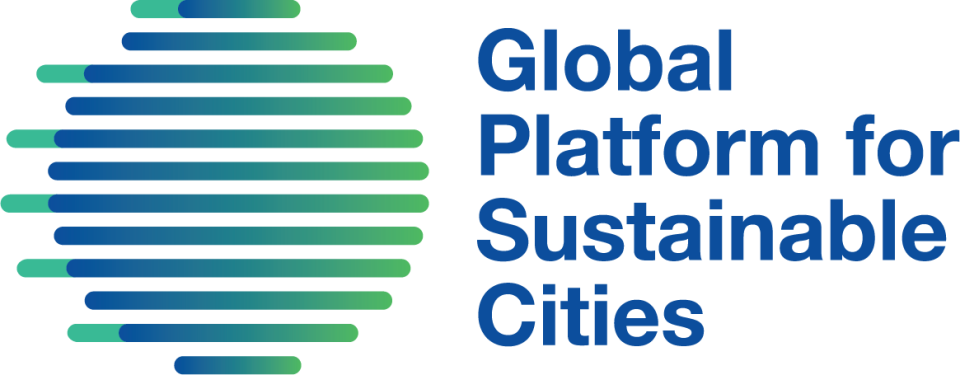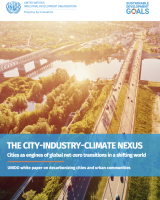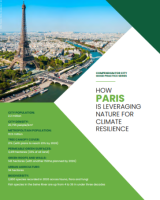Photo by Korie Cull on Unsplash
Global urban population is expected to reach six billion by 2045. The world faces the difficult task to meet the rising demands of urban residents in a sustainable way. Mounting energy and water needs, as well as transport and waste stresses, are challenging city planners to rethink urban planning . What if city planners could use an application, to predict how much energy and water their cities are likely to consume in the future? What if they could use the app’s data to attract private investments to build green cities?
Well, there’s already an app for that. A new data-driven application, the Advanced Practices for Environmental Excellence in Cities (APEX) App. A beta version of the app is available to city leadership and currently being piloted on IFC’s client cities. Once the design is finalized, the complete version will be simple, free, and accessible to everyone—from casual audiences to serious users.
The app allows city planners to make cities more sustainable in four key areas—energy, water, waste, and public transport. It harnesses data insights from advanced green practices around the world to create tailored solutions for particular cities. We believe that evidence-based data and powerful information can make cities better, and more sustainable places to live . We have intensively collected data and analyzed innovations that enable investments in green cities, and created market transforming tools such as EDGE, to scale up green buildings.
In a recent TEDxGateway talk, this vision of urban centers was shared with an international audience. A vision where homes, schools and offices will be as environmentally sustainable as possible within the given context, making cities greener and much more livable.
Greening global cities is not just good for the environment. It can also drive economic growth, attract financing through the green bond market and improve a city’s creditworthiness. It also creates local jobs.
A predictable, sustainable future
The app, which is being developed by the World Bank Group, will provide information in real time to help cities identify and invest in green solutions such as green buildings, recycling, renewable energy, and green transportation.
India, with its large population of more than one billion people, has huge energy needs, ranking as the third-largest energy consumer in the world . A large amount of its electricity—45 percent—is generated from coal, causing significant air pollution that negatively impacts its people. However, the country has set an ambitious target to install 175 gigawatts (GW) of renewable capacity by 2022, including 100 GW from solar.
The APEX App shows that it is possible for a city like Chennai in India, to reduce its electricity consumption significantly. Even with a city population of over 10 million people the app predicts it can reduce energy by 34 percent if every housing unit in the city installed solar panels by 2050. Doing so would lower electricity bills, reduce air pollution, and improve the quality of life for Chennai residents.
City leadership can use the app to measure the potential of making such incremental improvements to urban dwellings. Importantly, it can also estimate how much each solution will cost, the amount of carbon emissions that can be reduced, and how many jobs it would add to the local economy. Likewise, water management simulations in the app show that Chennai could increase water security by 40 percent by 2050 if it adopted the Singapore model of water management, thus bolstering water self-sufficiency and reducing water bills.
IFC’s Cities Initiative helps cities by financing and mobilizing private capital to invest in climate-smart projects in water, energy and other urban infrastructure and services. Prioritizing these climate-smart investments helps cities leverage strapped public funding by bringing in significant private sector investment to generate jobs, while addressing other vital issues like pollution, congestion, and housing.
“Cities in emerging markets around the globe have the potential to attract more than $29.4 trillion in cumulative climate-related investments. IFC platforms like APEX not only provide our client cities ways to prioritize green infrastructure projects but also allow us to develop valuable long-term strategic partnerships with our clients,” says Alice Laidlaw, IFC’s Global Cities Infrastructure Manager.
Solving public transportation challenges in Ho Chi Minh City
In Vietnam’s commercial center, Ho Chi Minh City, pollution is high. The city has been rapidly developing, and its people are increasingly owning cars. As a result, the city is seeking to increase public transportation capacity to meet up to 30 percent of total travel demand. This would be a big leap from the four percent it currently supports. The APEX App identified policies and investments to increase public transportation use and reduce individual vehicle travel.
Investing in clean public transportation like electric buses and metros, along with non-motorized transport infrastructure such as dedicated bicycle lanes and electric bikes, can help cities in congested Asia reduce private vehicle travel distance, reduce time spent in traffic, and improve air quality . Additionally, fewer private cars on the road opens up space for pedestrians and cyclists—and for outdoor recreation spaces, such as children’s playgrounds.
A city planner’s dream
The APEX App’s evidence-based analysis will help predict the future costs for cities and planetary impacts. It will also help city planners implement practical solutions that shape the green cities of the future. All of this from a city planner’s smart phone!
For more information please visit the APEX Cities website here.
Originally published here







